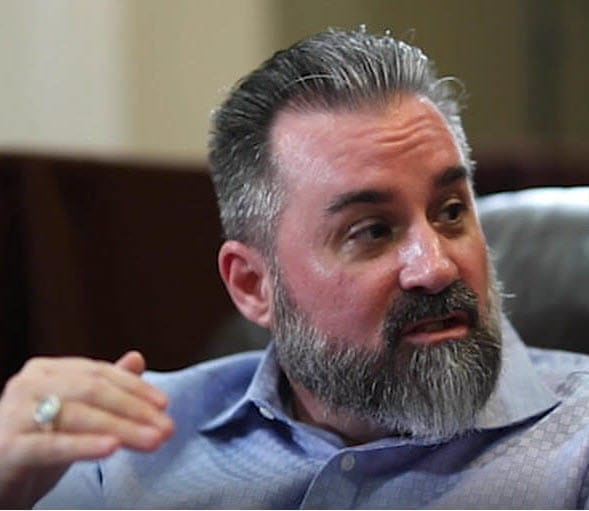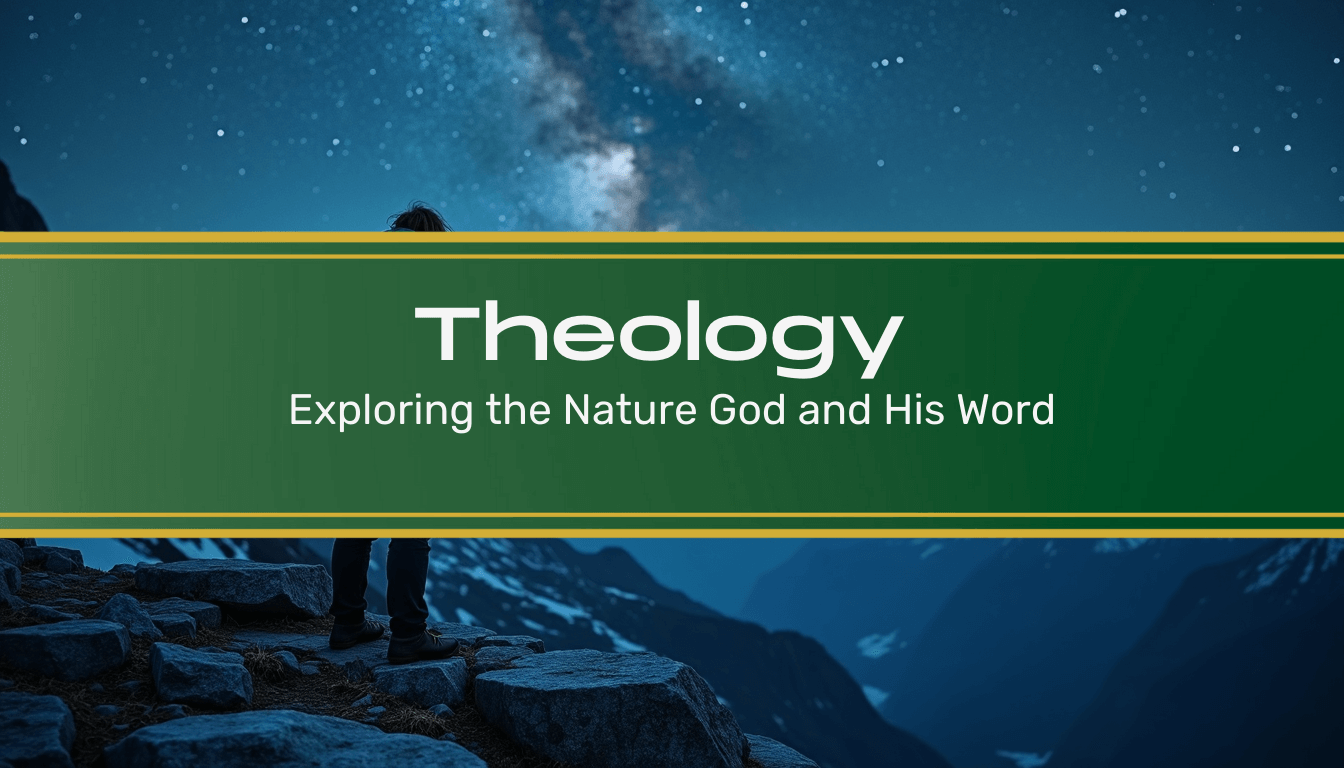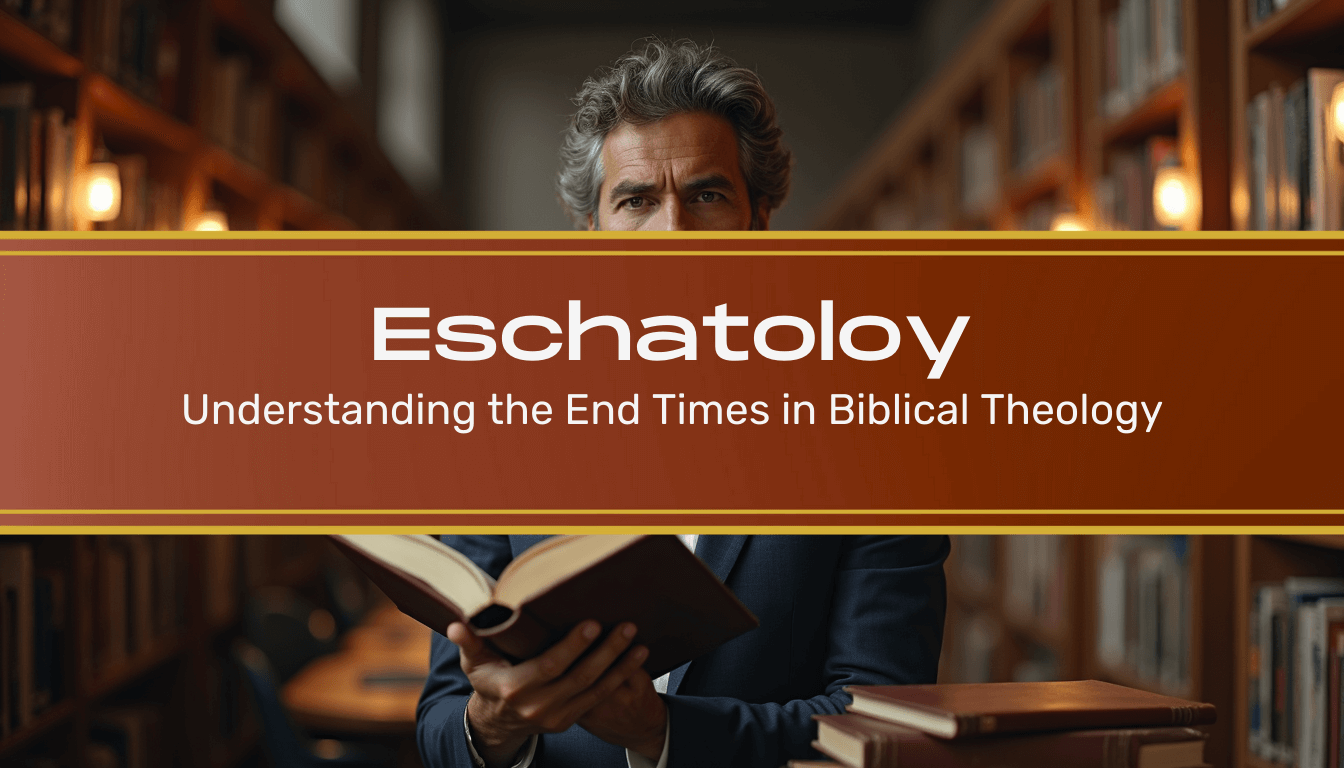
Jesus and the Resurrection
The Historical Event That Changed Everything
The Jesus and the resurrection question isn't just another theological debate—it's the ultimate historical investigation. Either the most extraordinary event in human history occurred in first-century Palestine, or the most successful lie ever told has fooled billions of people for two millennia.
There's no middle ground here. Jesus of Nazareth claimed He would rise from the dead, and either He did or He didn't. If He didn't, then Christianity is built on a foundation of sand, and every Christian who ever lived has been tragically deceived. If He did, then everything changes—our understanding of reality, death, meaning, and what it means to be human.
The Apostle Paul understood the stakes perfectly: "If Christ has not been raised, our preaching is useless and so is your faith" (1 Corinthians 15:14). He wasn't hedging his bets or offering spiritual metaphors. He was making a historical claim that could be investigated, verified, or falsified.
This isn't about blind faith versus reason. It's about examining the evidence honestly and following it wherever it leads. The resurrection of Jesus is either the best-attested miracle in history or the most successful hoax ever perpetrated. But it's not a matter of personal preference or cultural conditioning—it's a question of historical fact.
Why the Resurrection Question Matters More Than Ever
We live in an age that's simultaneously obsessed with evidence and allergic to supernatural claims. Modern people demand proof for everything, but they've been conditioned to dismiss anything that doesn't fit within a naturalistic worldview. This creates a perfect storm for the resurrection question.
It's the Foundation of Everything
Christianity doesn't just include the resurrection as one belief among many—it stands or falls on this single historical claim. Remove the resurrection, and you don't have a kinder, gentler version of Christianity. You have nothing.
Every other religious leader in history has died and stayed dead. Buddha, Muhammad, Confucius, Gandhi—all dead. Only Jesus claimed He would conquer death itself, and only Christianity claims He actually did it.
It Addresses Our Deepest Fear
Death is the great equalizer, the final enemy that no amount of money, power, or achievement can defeat. Every human being who has ever lived has faced the reality of mortality. The resurrection of Jesus claims that death has been defeated, that it's not the end of the story.
This isn't just comforting—it's revolutionary. If Jesus rose from the dead, then death is not the natural order of things. It's an intruder that has been conquered.
It Validates Supernatural Claims
In a naturalistic age, the resurrection serves as the ultimate test case for whether supernatural events can occur in history. If the resurrection happened, then naturalism is false and the door is open to divine intervention in human affairs.
Sharp Edge: The same academics who accept extraordinary claims about quantum mechanics, multiverses, and consciousness emerging from matter will reject the resurrection because it's "scientifically impossible." Apparently, impossibility is only a problem when it involves God.
The Historical Jesus: Separating Fact from Fiction
Before we can examine the resurrection, we need to establish what we know about the historical Jesus. This isn't as straightforward as it might seem, because Jesus studies has become a battlefield where ideology often trumps evidence.
The Quest for the Historical Jesus
For over two centuries, scholars have been trying to separate the "historical Jesus" from the "Christ of faith." This quest has gone through several phases:
The First Quest (18th-19th centuries) tried to strip away the supernatural elements and find the "real" Jesus underneath. It failed because it said more about the scholars' assumptions than about Jesus.
The Second Quest (mid-20th century) was more skeptical, questioning whether we could know anything about the historical Jesus. It produced the Jesus Seminar, which concluded that Jesus said very little of what the Gospels attribute to Him.
The Third Quest (late 20th century to present) has been more historically rigorous, using better methodology and taking the Jewish context of Jesus more seriously.
What Virtually All Scholars Agree On
Despite their differences, the vast majority of New Testament scholars—including non-Christians—agree on certain basic facts about Jesus:
Jesus of Nazareth was a real historical figure
He was a Jewish teacher and healer in first-century Palestine
He was crucified under Pontius Pilate around 30 AD
His followers claimed He appeared to them alive after His death
The early Christian movement began shortly after His death
These aren't Christian apologetic claims—they're the consensus of critical scholarship, including skeptics and non-believers.
The Sources
Our primary sources for Jesus are the four Gospels, but we also have:
Early Christian writings: Paul's letters, which contain early creeds and traditions about Jesus
Non-Christian sources: Josephus, Tacitus, Pliny the Younger, and others who mention Jesus or early Christians
Archaeological evidence: Discoveries that confirm the historical and cultural context of the Gospels
The idea that Jesus was a mythical figure invented by early Christians has been thoroughly debunked by serious scholarship. Even the most skeptical scholars acknowledge that Jesus existed.
The Crucifixion: The One Fact Nobody Disputes
If there's one thing that virtually every scholar agrees on, it's that Jesus was crucified. This isn't because the evidence is overwhelming (though it is)—it's because crucifixion was such a shameful way to die that no one would have invented it.
The Scandal of the Cross
Crucifixion was the most humiliating form of execution in the Roman world. It was reserved for slaves, rebels, and the worst criminals. The idea that the Son of God would die such a death was scandalous to both Jews and Gentiles.
Paul called it "a stumbling block to Jews and foolishness to Gentiles" (1 Corinthians 1:23). If the early Christians were making up a story about their Messiah, they never would have chosen crucifixion.
The Historical Evidence
The crucifixion is attested by:
All four Gospels
Paul's letters
Early Christian creeds
Non-Christian sources like Josephus and Tacitus
The details of Jesus' crucifixion—the trial before Pilate, the involvement of Jewish leaders, the method of execution—all fit perfectly with what we know about Roman and Jewish practices in first-century Palestine.
The Burial
Jesus was buried by Joseph of Arimathea, a member of the Jewish council. This detail is significant because:
It's attested by all four Gospels
Joseph was a named individual who could be verified
It would be strange to invent a story about a Jewish leader helping Jesus
It explains how Jesus got a proper burial despite being crucified
The burial sets the stage for the resurrection claims because it establishes that Jesus was definitely dead and that His body was placed in a known location.
The Resurrection Evidence: Building the Case
The resurrection of Jesus is supported by multiple lines of evidence that, taken together, point to a historical event that defies natural explanation.
The Empty Tomb
The empty tomb is one of the most well-attested facts in the Gospel accounts. It's mentioned in all four Gospels, and even Jesus' enemies didn't dispute that the tomb was empty—they just offered alternative explanations.
Why the Empty Tomb Matters
Without an empty tomb, there's no resurrection. If Jesus' body was still in the grave, the resurrection claims would have been easily disproven. The fact that even Jesus' opponents acknowledged the empty tomb shows that it was a known fact, not a later invention.
The Women as Witnesses
In first-century Jewish culture, women's testimony was not considered reliable in legal proceedings. If the Gospel writers were inventing the story, they would have made men the first witnesses to the empty tomb. The fact that women are consistently portrayed as the first witnesses suggests the accounts are historically accurate rather than theologically motivated.
The Early Proclamation
The resurrection was proclaimed in Jerusalem, where Jesus was crucified and buried, within weeks of His death. If the tomb wasn't empty, the authorities could have easily produced the body and ended the Christian movement before it started.
The Appearances
The New Testament records multiple appearances of the risen Jesus to different people in different circumstances:
Individual appearances: To Mary Magdalene, Peter, James, and others
Group appearances: To the disciples, to over 500 people at once
Varied circumstances: In Jerusalem, in Galilee, indoors, outdoors, to believers and skeptics
These appearances weren't visions or hallucinations—they involved physical interaction, eating, and extended conversations. The risen Jesus was recognizable but also somehow different, with a transformed body that could appear and disappear.
The Transformation of the Disciples
Perhaps the most compelling evidence for the resurrection is the dramatic transformation of Jesus' followers. Before the resurrection, they were a frightened, scattered group hiding from the authorities. After the resurrection, they became bold proclaimers of the Gospel, willing to suffer and die for their message.
From Cowards to Martyrs
The same disciples who abandoned Jesus during His crucifixion later faced persecution, imprisonment, and death rather than deny the resurrection. This transformation is historically undeniable and psychologically inexplicable unless they genuinely believed they had seen the risen Jesus.
Peter's Transformation
Peter, who denied Jesus three times during the crucifixion, became the bold leader of the early church. He was eventually crucified upside down in Rome rather than deny his faith. What could account for such a dramatic change except a genuine encounter with the risen Christ?
The Conversion of Skeptics
The resurrection accounts include appearances to people who were initially skeptical:
Thomas: Demanded physical proof and received it
James: Jesus' brother who didn't believe during His lifetime but became a leader in the early church
Paul: A persecutor of Christians who became Christianity's greatest missionary
These conversions are particularly significant because they involve people who had reasons to doubt or oppose the resurrection claims.
Sharp Edge: Critics will accept that people can be transformed by powerful ideas, inspiring leaders, or life-changing experiences. But suggest that people might be transformed by actually seeing someone rise from the dead, and suddenly they become experts on the impossibility of such transformations.
The Birth of the Church
The rapid growth of the early Christian church in the face of intense persecution is best explained by the resurrection. Within a few decades, Christianity had spread throughout the Roman Empire, despite official opposition and social stigma.
The Jerusalem Factor
Christianity began in Jerusalem, the very city where Jesus was crucified. If the resurrection was a hoax, Jerusalem was the worst possible place to start proclaiming it. The authorities, the witnesses to the crucifixion, and Jesus' tomb were all right there.
Yet the church grew rapidly in Jerusalem, with thousands of Jews converting to Christianity. This is historically inexplicable unless something extraordinary had actually happened.
The Early Creeds
Paul's letters contain early Christian creeds that date to within a few years of Jesus' death. The most famous is in 1 Corinthians 15:3-7:
"For what I received I passed on to you as of first importance: that Christ died for our sins according to the Scriptures, that he was buried, that he was raised on the third day according to the Scriptures, and that he appeared to Cephas, and then to the Twelve."
This creed was already established when Paul wrote to the Corinthians around 55 AD, and Paul himself received it shortly after his conversion around 35 AD. This means the resurrection was being proclaimed as historical fact within a few years of Jesus' death, not decades later as critics often claim.
Examining Alternative Theories
Throughout history, skeptics have proposed various theories to explain away the resurrection evidence without accepting that Jesus actually rose from the dead. Let's examine the most popular alternatives.
The Conspiracy Theory
This theory suggests that the disciples stole Jesus' body and invented the resurrection story.
Problems with the Conspiracy Theory:
The disciples had no motive to create a lie that would bring them persecution and death
Conspiracies involving multiple people typically fall apart under pressure, but the disciples maintained their story even unto death
The transformation of the disciples is inexplicable if they knew they were lying
The rapid growth of the church in Jerusalem would have been impossible if the authorities could have produced Jesus' body
The Hallucination Theory
This theory suggests that the disciples experienced hallucinations or visions that they mistook for actual appearances of Jesus.
Problems with the Hallucination Theory:
Hallucinations are typically individual experiences, but Jesus appeared to groups of people
The appearances occurred over 40 days in various locations and circumstances
Hallucinations don't explain the empty tomb
The disciples were initially skeptical and had to be convinced—not the mindset that typically produces hallucinations
The Swoon Theory
This theory suggests that Jesus didn't actually die on the cross but merely lost consciousness and later revived in the tomb.
Problems with the Swoon Theory:
Roman executioners were experts at ensuring death—their lives depended on it
Jesus was speared in the side, and blood and water flowed out, indicating death
Even if Jesus had survived crucifixion, He would have been in no condition to convince His disciples He had conquered death
The theory doesn't explain how Jesus escaped from a sealed tomb
The Wrong Tomb Theory
This theory suggests that the women went to the wrong tomb and found it empty, leading to the resurrection belief.
Problems with the Wrong Tomb Theory:
The tomb belonged to Joseph of Arimathea, a known figure who could have corrected any mistake
The Jewish and Roman authorities could have easily pointed to the correct tomb and produced the body
This theory doesn't explain the appearances of Jesus
The Legend Theory
This theory suggests that the resurrection stories developed over time as legends and myths were added to the original accounts.
Problems with the Legend Theory:
The resurrection was proclaimed immediately after Jesus' death, not decades later
The early creeds in Paul's letters show that the resurrection was part of Christian belief from the very beginning
Legends typically take generations to develop, but Christianity spread rapidly while eyewitnesses were still alive
The Gospel accounts contain embarrassing details that would have been omitted from legendary accounts
Sharp Edge: It's fascinating how critics will accept the most convoluted, evidence-free theories to avoid the resurrection, but they'll reject the straightforward explanation that fits all the evidence. Apparently, anything is more believable than God raising someone from the dead—even mass hallucinations and incompetent Roman executioners.
The Scholarly Consensus
While scholars disagree about the interpretation of the evidence, there's remarkable consensus about the basic facts surrounding Jesus' death and the early resurrection claims.
What Critical Scholars Accept
Even skeptical scholars generally accept:
Jesus died by crucifixion
He was buried
The tomb was found empty
The disciples claimed to have seen Him alive
These claims were made very early, not decades later
The disciples were transformed by their experiences
Christianity grew rapidly despite persecution
The Minimal Facts Approach
Scholars like Gary Habermas have developed the "minimal facts" approach, which uses only facts that are accepted by the vast majority of scholars, including skeptics. These facts, taken together, point to the resurrection as the best explanation.
The Historical Method
When historians evaluate ancient events, they use criteria like:
Multiple attestation: Is the event reported by multiple independent sources?
Early testimony: How close in time are the sources to the events they describe?
Embarrassment: Do the accounts include details that would be embarrassing or counterproductive to invent?
Coherence: Do the accounts fit with what we know about the historical context?
By these criteria, the resurrection of Jesus is one of the best-attested events in ancient history.
Contemporary Challenges to the Resurrection
Modern objections to the resurrection often come not from historical evidence but from philosophical assumptions about what's possible in a naturalistic universe.
The Naturalistic Worldview
Many people reject the resurrection not because of insufficient evidence but because they've already decided that miracles are impossible. This is a philosophical position, not a historical one.
But naturalism is itself a faith commitment that can't be proven scientifically. If God exists, then miracles are possible. The question isn't whether miracles fit our worldview—it's whether our worldview fits the evidence.
The Scientific Objection
Some claim that science has disproven the possibility of resurrection. But science describes how the natural world normally operates—it doesn't prove that supernatural intervention is impossible.
Science can tell us that dead people normally stay dead, but it can't tell us that God can't raise the dead. That's a philosophical question, not a scientific one.
The Comparative Religion Objection
Critics sometimes claim that resurrection stories are common in ancient religions, so the Christian claim isn't unique. But this comparison falls apart under examination:
Most ancient "resurrection" stories are about seasonal cycles or mythical figures, not historical people
The Jewish context of Jesus' resurrection was hostile to such ideas—Jews believed in future resurrection, not immediate resurrection of individuals
The Christian resurrection accounts have the characteristics of historical reporting, not mythological storytelling
The Cultural Conditioning Objection
Some argue that resurrection belief was just a product of first-century culture. But this gets the history backward—resurrection belief was actually countercultural in the ancient world.
Greeks believed in the immortality of the soul but rejected bodily resurrection as crude and undesirable. Jews believed in future resurrection but not in the resurrection of individuals before the end times. The Christian claim was as shocking to ancient people as it is to modern ones.
The Implications of the Resurrection
If Jesus rose from the dead, the implications are staggering. This isn't just an interesting historical fact—it changes everything about how we understand reality, meaning, and human destiny.
The Validation of Jesus' Claims
Throughout His ministry, Jesus made extraordinary claims about Himself:
He claimed to be the Son of God
He claimed to have authority to forgive sins
He claimed to be the way to eternal life
He claimed He would rise from the dead
The resurrection validates all of these claims. If Jesus rose from the dead, then He is who He claimed to be, and His other claims must be taken seriously.
The Defeat of Death
Death is humanity's greatest enemy and ultimate fear. The resurrection of Jesus demonstrates that death is not the end of the story—it's a defeated enemy that has been conquered.
This doesn't mean that Christians don't die physically, but it means that death is not the final word. For those who trust in Christ, death is a doorway to eternal life, not a dead end.
The Promise of Future Resurrection
The resurrection of Jesus is described in the New Testament as the "firstfruits" of a general resurrection. Just as Jesus was raised from the dead, so all who trust in Him will be raised to eternal life.
This isn't just spiritual survival—it's the promise of bodily resurrection to a transformed existence. The resurrection of Jesus gives us a preview of what awaits all believers.
The Foundation of Hope
In a world filled with suffering, injustice, and death, the resurrection provides ultimate hope. It assures us that:
Evil will not have the final word
Justice will ultimately prevail
Death will be defeated
God's love is stronger than any force in the universe
The Call to Decision
The resurrection of Jesus demands a response. If it's true, then Jesus is Lord, and we must decide how to respond to His lordship. If it's false, then Christianity is a delusion, and we should reject it.
There's no neutral ground. The resurrection is either the most important event in history or the most successful lie ever told. But it's not a matter of personal preference—it's a question of historical fact that demands investigation and decision.
Sharp Edge: People will spend months researching which car to buy or which college to attend, but they'll dismiss the resurrection of Jesus without examining the evidence. Apparently, eternal questions deserve less investigation than temporal ones.
Living in Light of the Resurrection
If the resurrection is true—and the evidence strongly suggests it is—then it should transform how we live. This isn't just ancient history; it's the foundation for a completely different way of understanding life, death, and meaning.
Confidence in the Face of Death
The resurrection means that death is not the end. For those who trust in Christ, death is a defeated enemy, not an ultimate threat. This doesn't make us reckless, but it does free us from the paralyzing fear of mortality that drives so much human behavior.
Hope in Suffering
The resurrection assures us that suffering is not meaningless and that injustice will not have the final word. God has entered into human suffering through the cross and has conquered it through the resurrection.
Purpose in Life
If Jesus rose from the dead, then life has ultimate meaning and purpose. We're not just biological accidents in a meaningless universe—we're created beings with eternal significance.
Urgency in Mission
The resurrection creates urgency about sharing the Gospel. If Jesus conquered death and offers eternal life, then this is the most important message in the world. It's too good to keep to ourselves and too important to delay.
The Historical Verdict
After examining the evidence, what's the verdict? The resurrection of Jesus is supported by:
Multiple independent sources
Early testimony from eyewitnesses
The empty tomb acknowledged even by opponents
The transformation of skeptical disciples
The rapid growth of Christianity in hostile territory
The failure of alternative theories to explain the evidence
No other event in ancient history is supported by such diverse and compelling evidence. If we applied the same standards of skepticism to other historical events that critics apply to the resurrection, we'd have to reject most of what we know about the ancient world.
The resurrection of Jesus is not just a matter of faith—it's a conclusion supported by historical evidence. The question isn't whether there's enough evidence to believe it, but whether we're willing to accept the implications if it's true.
The Ultimate Question
The resurrection of Jesus forces us to confront the ultimate questions of existence: Is there a God? Does life have meaning? Is death the end? What happens after we die?
These aren't just philosophical puzzles—they're the most practical questions we can ask because they determine how we should live. If Jesus rose from the dead, then He has the authority to answer these questions, and we ignore His answers at our own peril.
The evidence is there for anyone willing to examine it honestly. The question isn't whether Jesus rose from the dead—the evidence strongly supports that conclusion. The question is what you're going to do about it.
Because if Jesus conquered death, then everything changes. Your understanding of reality, your approach to life, your preparation for death, your hope for the future—all of it must be reconsidered in light of the resurrection.
The tomb is empty. The evidence is compelling. The implications are staggering. The question is: what will you do with the risen Christ?
We don’t sidestep hard topics. We face them with Scripture, honesty, and respect. Start by exploring our category pages—they’re practical and built to help you think biblically. If what you find is useful, take your time and drill down into the articles within each category. If you do, you’ll learn a lot—and you’ll be better equipped to live like Christ.
Why the Bible can be trusted as historically accurate and divinely inspired.
The historical evidence for Christianity's central claim.
How modern science points to a Designer behind the universe.
Examining the evidence for different views on origins.
Why suffering doesn't disprove God's existence.
Put This Into Practice
Research one piece of evidence for the resurrection mentioned in this article and write a paragraph about its significance.
Memorize 1 Corinthians 15:3-7 and reflect on why this early creed is so important for resurrection evidence.
Consider how the reality of the resurrection should change your approach to death, suffering, and sharing your faith.
Conclusion
The resurrection of Jesus Christ is not just the cornerstone of Christianity—it's the most well-documented miracle in history. The evidence is overwhelming: the empty tomb, the eyewitness testimony, the transformation of the disciples, the birth of the church, and the failure of alternative theories to explain the facts.
But the resurrection isn't just a historical curiosity—it's the event that changes everything. It validates Jesus' claims about Himself, defeats humanity's greatest enemy, and offers hope that transcends death itself. It transforms how we understand reality, meaning, and human destiny.
The question isn't whether there's enough evidence to believe in the resurrection—there is. The question is whether you're willing to accept the implications of that evidence. Because if Jesus rose from the dead, then He is who He claimed to be, and His claims on your life are absolute.
The tomb is empty. The evidence is clear. The implications are staggering. What will you do with the risen Christ?

Chris Daniel, just a servant of Christ calling others to be ready. Like the Bereans, I try to examine Scripture daily to see if what I hear is true. If you're struggling to live as we're called, you're still in the fight. Don't give up.
Category 2 - Christian Apologetics

Category 3 - Bible Study

Category 4 - Theology


"Most middle-class Americans tend to worship their work, work at their play, and play at their worship. As a result, their meanings and values are distorted. Their relationships disintegrate faster than they can keep them in repair. Their lifestyles resembles a cast of characters in search of a plot." - Gordon Dahl
"The Bible is a reliable collection of historical documents written down by eyewitnesses during the lifetime of other eyewitnesses that report supernatural events that took place in fulfillment of specific prophecies and claimed their writings were divine rather than human in origin."
- Dr. Voddie Baucham on 2 Peter 1





